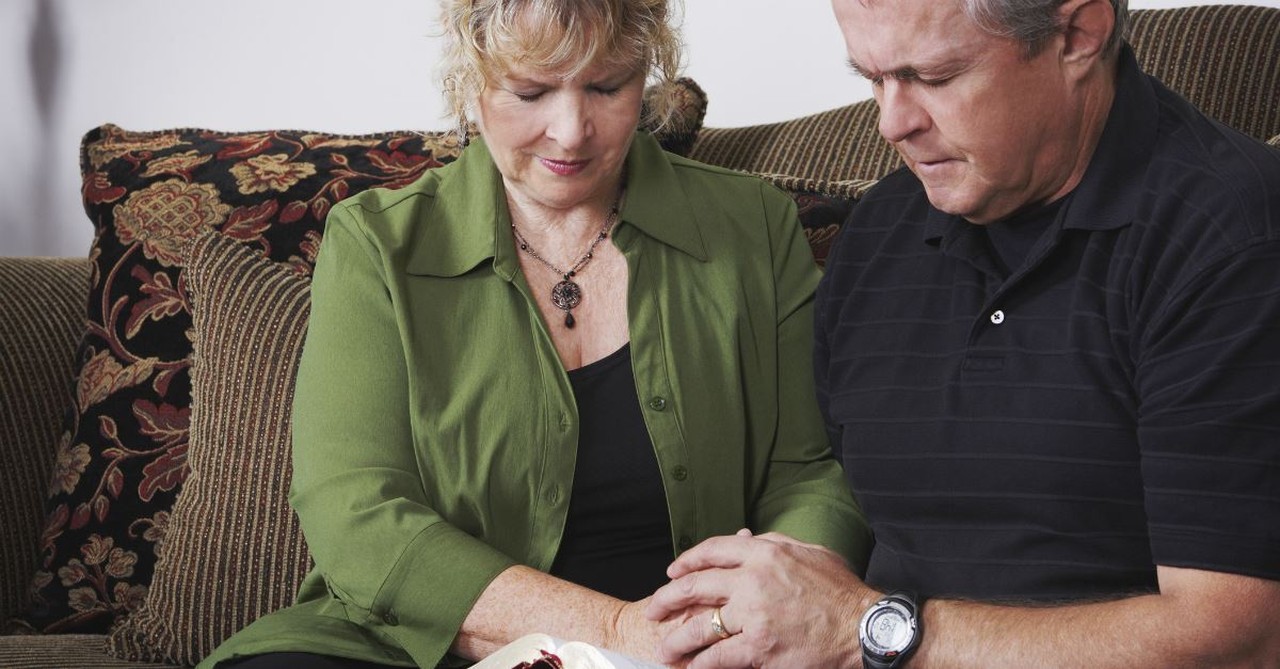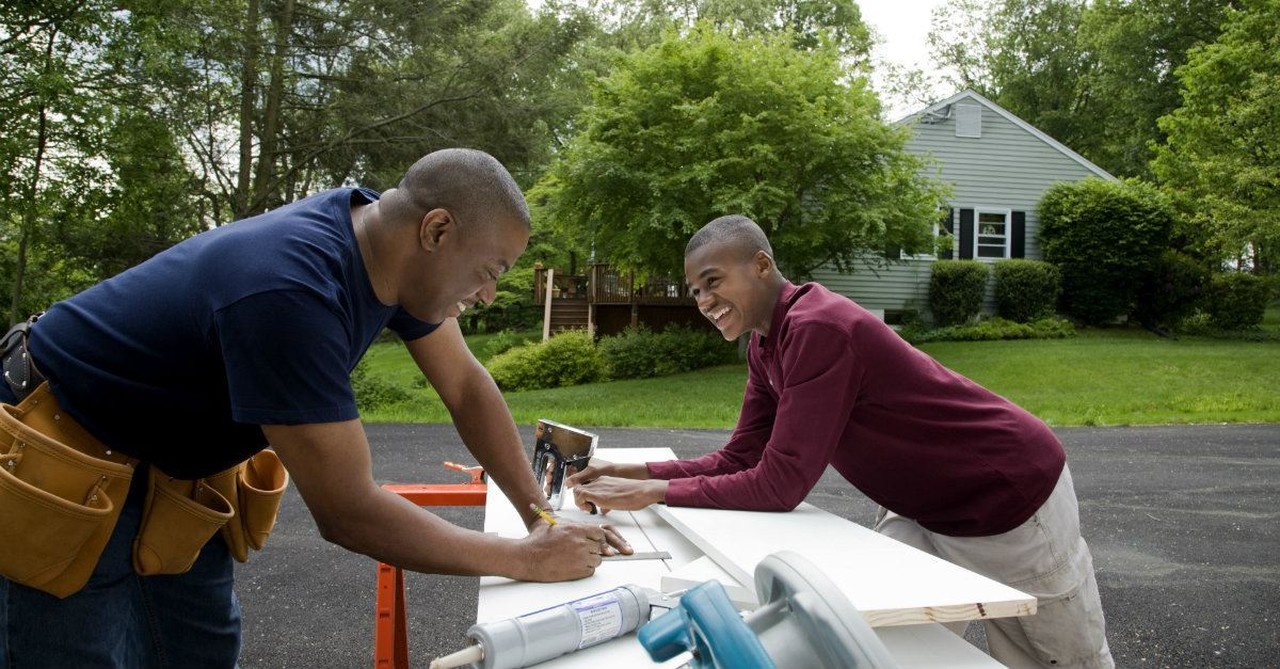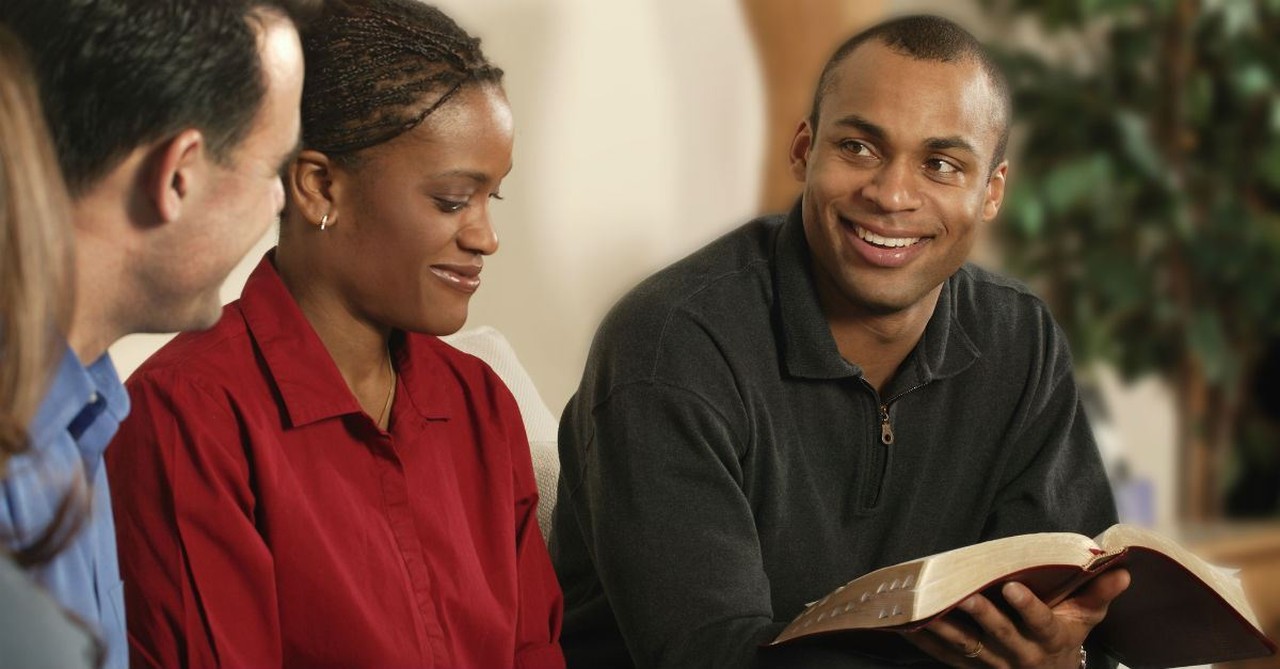
Young people today are leaving the church at an alarming rate. According to Barna Research, only 4 out of 10 young people who grow up with a Christian background continue to faithfully attend church into adulthood.
We can blame that on rebelliousness, the lure of the world, the church’s perceived irrelevance, or the attack of Satan. But the real question is, how do we positively impact young people for Christ?
Perhaps the answer is not a new program or approach, but simply being the kind of people that youth actually want to follow. When you and I live like Jesus and approach life genuinely, they might find something in us worth imitating. Here are 10 ways you and I can become the elders that today’s youth want to follow:
Photo Credit: GettyImages/monkeybusinessimages
1. Be an Elder Who Acts Like an Adult

1. Be an Elder Who Acts Like an Adult
SLIDE 1 OF 10
An elder worth following is someone who is sincere in their faith and authentic in their encounters and conversations with the youth. Don’t try to project a super spiritual image or pretend to be more in command of a situation than you are. Today’s youth value genuine authenticity more than any other generation before them. Be real. Be sincere. And most of all, act your age.
A former youth pastor recently told me “I cannot tell you how many adults I've watched turn into completely different people when working in youth ministry. They want to be liked and try to be relatable, so what do they do? They start acting and talking like teens instead of just being fun, honest, caring, and authentic adults. An elder is called an elder for a reason. Young people don't expect adults to be or act just like them. Young people who are serious about their faith are looking to follow an elder who models the type of man or woman they want to be, not a poor (or pathetic) imitation of what an adult thinks a young person is or how they act.”
Photo Credit: GettyImages/Kristy-Anne-Glubish-Design-Pics
2. Be Joyful, Not Critical

2. Be Joyful, Not Critical
SLIDE 2 OF 10
From the two elderly hecklers on The Muppet Show to the movie Grumpy Old Men, the “stodgy old person” stereotype is still alive and well, especially in the church. But we can overcome that stereotype by exhibiting genuine joy.
A young person wants to see an elder who is still filled with excitement about serving the Lord. After all, if serving God becomes a drudgery at our age, what do they have to look forward to? Youth today are surrounded by far too much pretending and identity uncertainty to tolerate false enthusiasm—especially from adults. Have contagious joy in your heart, and you’ll be an elder youth will want to follow.
Photo Credit: GettyImages-HeroImages
3. Be Flexible without Compromising

3. Be Flexible without Compromising
SLIDE 3 OF 10
You don’t have to compromise your values and convictions to be flexible, but make sure those values and convictions you hold to are biblical, not merely traditional. Don’t resist a young person’s ideas, criticize their enthusiasm, or consider them young and naïve simply because “we’ve never done it that way before.”
Each of us was at one time a young person with ideas. Extend grace on every issue and be flexible when it’s not a moral or biblical one. By doing so, you will earn their respect and be the kind of elder they want to follow.
Photo Credit: GettyImages/MangoStar_Studio
4. Be Consistent and Invested

4. Be Consistent and Invested
SLIDE 4 OF 10
It’s a fact that young people become attached to leaders and want to build relationships with those they admire and respect. Leaders can make young people feel valued, seen, and understood; but too often, a young person's favorite leader will be asked (or forced) to hand them off to the next leader who might not value or understand them in the same way. This happens with teachers, coaches, youth pastors, and so on. When this hand-off occurs, the teen is forced to build a new relationship of trust which can be emotionally draining and result in skepticism toward leaders.
Young people need an elder or a mentor who can prove to them that they are invested in their growth and willing to stick around to see fruit grow. In a world of so much change and uncertainty, young people are desperate for consistency. An elder who can consistently encourage them and point them to the one true constant, which is Christ, is an elder worth following.
Photo Credit: GettyImages/SeventyFour
5. Be Their Advocate

5. Be Their Advocate
SLIDE 5 OF 10
Young people will follow elders who are willing to fight for them. What happens when you know someone is your advocate? You feel seen and supported. You come alive and gain courage when you know you have someone in your corner. That is what elders can do for young people. They can champion young people and become their strongest advocates.
Too many youths today don’t feel support at home. Without a loving parent – or two – they will crave affirmation, representation, and the security of knowing someone is in their corner. Even adults need advocates. Imagine how much more a young person could benefit from someone willing to fight for them.
Leah Olson, a 19-year-old social work major at Messiah College, said, “It is great when people, specifically older people, allow us to figure things out, come to our own conclusions, and even possibly fail. We don’t need to succeed at everything, we need to be supported – even through failure.”
Photo Credit: Thinkstock/DMEPhotography
6. Promote Generational Unity

6. Promote Generational Unity
SLIDE 6 OF 10
When elders talk about generational differences, they often do so condescendingly. Young people are made to feel like they are making mistakes that adults never made when they were younger. How many young people feel belittled because they use social media, struggle to find their identity, can't afford to buy a house, can't find a job, or rely on their phones for everything? They feel like they are being blamed for being their age, but who invented social media in the first place? Who built the smart phone and put it into the hands of our young people? Who is responsible for our recent economic downturn or the state of our educational system? Is it our youth, or are they just living in the world we created for them?
An elder can go a long way in building an authentic relationship with a young person by guiding them through problems with patience and grace. My personal friend, former youth pastor, young adult writer, and college professor Joel Ryan said:
“An adult who consistently reiterates the generational divide will only reinforce it. Elders can promote generational unity by speaking to generational truth. What areas of faith and God's love are applicable to all generations? Has sin changed? The twelve disciples of Jesus were young men trying to figure out some of the same issues we are today. Pride. Patience. Faith. Trust. Courage. We're talking a 2000-year generational gap, and still the same issues, struggles and need for a Savior.” Ryan continued: “An elder who understands what has changed for young people has only reached Level 1. An elder who respects the struggles of teens and young adults without scoffing at them has made it to Level 2. An elder who can help guide and equip young people to navigate this world by referencing their experience and biblical truth for ALL generations is on to something life-changing.”
Photo Credit: Thinkstock
7. Invite Youth to the Table

7. Invite Youth to the Table
SLIDE 7 OF 10
Have you wondered why college-aged men and women often don’t attend the church retreats? Sometimes, all a young person needs is an invitation. Remember, Jesus called his disciples to come "follow” Him, and they did. An elder shouldn't always wait for a young person to step out on their own. Sometimes they need a push. An invitation can be the start to building a meaningful relationship with a young person.
Furthermore, an invitation to be part of the conversation is essential to empowering a young person and helping them gain confidence. Elders should let youth pray in the company of elders. Give them an opportunity to speak. Value and listen to their input. They're not going to be right all the time. They're going to make mistakes, and they know it. But an elder who can allow a young person to make a mistake, care enough to coach them through it, and then guide them back into the arena will raise up tomorrow's leader.
Photo Credit: Thinkstock/Userc0373230_9
8. Understand Grace and Offer it Generously

8. Understand Grace and Offer it Generously
SLIDE 8 OF 10
Many youth in the church today have a deeply flawed and even harmful perspective on grace. Why? Because they were never shown it growing up or never saw it modeled faithfully in the church. Many of these young people ended up leaving the church or struggled deeply in their relationship with God well into their adulthood because of the damage done to them in the church. When our perspective on grace is flawed, our understanding of God's love is incomplete. Elders must introduce young people to the power of grace through actions, words, and most importantly, lifestyle. Otherwise, our youth will not see it. They crave it because they were designed to seek forgiveness from only one source: a Savior. An elder who can bridge this gap through grace will show a young person the love and very nature of God in ways that cannot be understated or refuted.
Photo Credit: GettyImages/HeroImages
9. Care Enough to Correct.

9. Care Enough to Correct.
SLIDE 9 OF 10
Sometimes the most loving and caring thing an elder can do is tell a young person when he or she is out of line or about to step over it. Whether they can verbalize it or not, young people know the difference between a boundary and a barrier. Boundaries create a healthy perimeter that allows a young person to know they will be caught or protected if they fall or fail. Barriers just tell them “no” without giving reasons why.
Unlimited freedom can make a young person feel like no one cares. Correction, on the other hand, shows investment. One young person said: “An elder who cares enough about me to tell me when I'm wrong will earn my trust. They show they care, and they show they are invested in me becoming better.” A young person will also know that an elder who corrects them in love didn't do so easily. It's difficult to tell someone they're wrong. It takes courage. It's not easy and it's not always popular. A young person knows this, and seeing it demonstrated by an adult reveals maturity and courage. This will earn their respect.
Photo Credit: Thinkstock/imtmphoto
10. Challenge a Young Person to Step Up

10. Challenge a Young Person to Step Up
SLIDE 10 OF 10
Think about words that were spoken to you by a favorite teacher, coach, or youth pastor that challenged you to step up and step out: “I dare you to be better.” “Prove me right.” “I wish you could see in yourself what I see in you.” “You’re going to do great things.” “You are a true leader.” “You’re just getting started.” “I can’t wait to say ‘I knew you when….’”
God called Gideon "Mighty Warrior" and he became that. Be an elder who not only gives invitations, but also words of inspiration. Think about it. When someone saw you for who you were and challenged you to grow into who you were born to be, you wanted to step up and do it, didn’t you? Not only that, but you also didn’t want to disappoint them. Fuel a young person’s fire and spur them to action; they will want to follow you.
Cindi McMenamin is a national speaker and award-winning writer who helps women and couples strengthen their relationship with God and with others. She has authored more than a dozen books including When Women Walk Alone(more than 130,000 copies sold), When God Sees Your Tears, When a Woman Overcomes Life’s Hurts, Drama Free, and her newest book, 12 Ways to Experience More with Your Husband. She and her husband, a pastor, co-authored the book, When Couples Walk Together: 31 Days to a Closer Connection. For more on her resources to help strengthen your walk with God, your dating relationship, your marriage, or your parenting, see her website: www.StrengthForTheSoul.com.
Photo Credit: Thinkstock/DesignPics
Originally published March 28, 2019.







